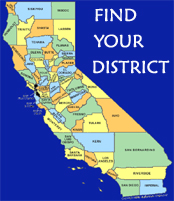Pension Backlash Clouds Contests in Local Ballot Measures
San Diego Tax Measure Typifies Challenges in Tough Times
The success of firefighter-backed candidates was a cause for celebration at the state and local levels. Further down the ballot, however, a less hospitable wind was blowing.
Stoked by economic distress and a wave of retirement horror stories, nearly a dozen measures on issues ranging from pensions to binding arbitration were on the ballot in cities from Redding to San Diego. In almost all of these measures, the firefighter position came up short:
• Retirement security: Lower-tier retirement for new employees was approved in San Jose, Menlo Park, Bakersfield and Riverside. An advisory vote authorizing lower-tier retirement was passed in Redding. Pacific Grove voters capped the city's contribution to employee retirement plans. In the lone victory on pensions, San Francisco voters rejected a measure that would have forced existing employees to pay more in retirement costs.
• Public votes on pensions: Carlsbad voters authorized a requirement that pension increases require a public vote. In Riverside, voters approved a measure to force a public vote on pension decreases, but it was superseded by a larger vote on a pension rollback measure.
• Binding arbitration: Voters in Stockton and San Jose overwhelmingly approved a measure eliminating their local binding arbitration ordinances, following Vallejo's elimination of binding arbitration earlier this year.
• Local resources: Despite waves of service reductions, including brownouts and station closures, voters in Palo Alto rejected a requirement that additional service cuts be put to a public vote.
Perhaps no contest better typifies the challenging environment in which many locals were operating than the defeat of San Diego's Measure D.
The measure, which tied a half-cent sales tax increase to a battery of fiscal reforms (including pension rollbacks) addressed an array of critical needs in San Diego, including fire service cuts in a city whose emergency response is already dramatically underfunded. It also enjoyed one of the broadest support coalitions in the state: unified labor backing, near-unified elected official support, and backing from the city's powerful Chamber of Commerce and Downtown Partnership.
"We had something you never see in this city," said San Diego City Firefighters Local 145 President Frank DeClercq. "When almost all of the council - Democrats and Republicans - signs on, that would seem to be the way to go."
Despite these advantages, and a nearly $500,000 campaign, Measure D lost big. While there were concerns that the measure was overly complicated, DeClercq said the campaign wound up boiling down to one issue: pension reform.
"Our streets are in disrepair, public safety is underfunded, but all you heard was 'we need pension reform ... stop these pensions,'" said DeClercq. "The anti-pension forces have done a good job disparaging us in tough economic times, and the residents are angry."
DeClercq said there were some positives that emerged from the campaign. Even in a city where anti-pension advocates are most active, the approval rating for firefighters remains high. Local officials who opposed Measure D have subsequently vowed to reinstate browned-out engines. And the campaign produced a more collaborative relationship between firefighters and the downtown business community. But Measure D also demonstrates that even the best campaigns can fall victim to tough times.
"It's just so toxic out there," DeClercq said. "They have done a good job brainwashing the public."
CLICK HERE TO READ ABOUT MEASURE D IN BAKERSFIELD.
CLICK HERE TO READ ABOUT MEASURE H IN STOCKTON.

